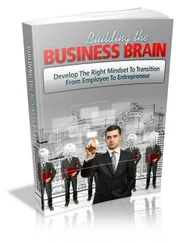Bruce Hood - The Domesticated Brain - A Pelican Introduction (Pelican Books)
Здесь есть возможность читать онлайн «Bruce Hood - The Domesticated Brain - A Pelican Introduction (Pelican Books)» весь текст электронной книги совершенно бесплатно (целиком полную версию без сокращений). В некоторых случаях можно слушать аудио, скачать через торрент в формате fb2 и присутствует краткое содержание. Год выпуска: 2014, ISBN: 2014, Издательство: Penguin Books Ltd, Жанр: Старинная литература, на английском языке. Описание произведения, (предисловие) а так же отзывы посетителей доступны на портале библиотеки ЛибКат.
- Название:The Domesticated Brain: A Pelican Introduction (Pelican Books)
- Автор:
- Издательство:Penguin Books Ltd
- Жанр:
- Год:2014
- ISBN:9780141974873
- Рейтинг книги:4 / 5. Голосов: 1
-
Избранное:Добавить в избранное
- Отзывы:
-
Ваша оценка:
- 80
- 1
- 2
- 3
- 4
- 5
The Domesticated Brain: A Pelican Introduction (Pelican Books): краткое содержание, описание и аннотация
Предлагаем к чтению аннотацию, описание, краткое содержание или предисловие (зависит от того, что написал сам автор книги «The Domesticated Brain: A Pelican Introduction (Pelican Books)»). Если вы не нашли необходимую информацию о книге — напишите в комментариях, мы постараемся отыскать её.
The Domesticated Brain: A Pelican Introduction (Pelican Books) — читать онлайн бесплатно полную книгу (весь текст) целиком
Ниже представлен текст книги, разбитый по страницам. Система сохранения места последней прочитанной страницы, позволяет с удобством читать онлайн бесплатно книгу «The Domesticated Brain: A Pelican Introduction (Pelican Books)», без необходимости каждый раз заново искать на чём Вы остановились. Поставьте закладку, и сможете в любой момент перейти на страницу, на которой закончили чтение.
Интервал:
Закладка:
An alternative, darker explanation is a bit more Machiavellian. One reason that people share or are generous is to enhance their reputation in the eyes of others by appearing to be kind. Support for this ulterior motive comes from observations that adults are less financially generous when there is no audience to witness their donations 42or the amount they donate remains anonymous. 43It would seem that noble acts of generosity are intended to help ourselves more than help others. This is also true of children. When five-year-olds were presented with the opportunity to share stickers, they were decidedly ungenerous unless the recipient was present and the amount they shared was transparent. 44
Ulterior motives do not mean that all of us operate like this and the fact that vast amounts of money and property are donated to charities anonymously seems to undermine the ignoble account. However, these forms of altruism work at the psychological level because they make us feel better about ourselves. In order to understand such altruistic acts, we have to recognize how helping others makes us feel good, but feel bad when we don’t.
The kindness of strangers
We often help others in situations where there is no immediate benefit to ourselves or indeed there is no reward in the future. We are even willing to help strangers. Young children start to help strangers surprisingly early. At eighteen months, they will spontaneously pick up dropped items and open doors or boxes to help an experimenter even when they are not told to do so or given a reward. 45In fact, rewarding children makes them less helpful because we generally do not like having our acts of kindness reduced to something that was done for obvious gain. 46It is unlikely that children have been trained to help, but rather, they do so because it is in our human nature. 47Animals can help other members of their own species, but the observations of helping in non-human primates are sporadic and open to alternative interpretations that divide the scientific community. In fact, some argue that the basic principle of helping others out of good will is uniquely human. 48
Chimpanzees will reliably help a human retrieve an out-of-reach object, but the helping may have been shaped during their captivity. Whenever we see domesticated animals performing feats that are not observed regularly in their natural habitat, we have to ask whether those abilities are part of their repertoire or rather demonstrations of the power of learning and expectations. After all, throughout this book we have been arguing that domestication changes brains and behaviour. Semi-wild chimpanzees 49and other non-human primates 50appear to cooperate, but they do not necessarily think of helping as a selfless act. There are many reports of animals working in collaboration but ultimately these are strategies to benefit the individual.
Chimpanzees will lend a hand to help another gain access to food, but not if they have to give up food that is already in their possession. Not only do chimpanzees fail to share food with non-relatives but that selfishness also applies to mothers and their babies. When their baby is begging for food, it has been observed that mothers will pass on a morsel, but when they do, it is usually done reluctantly and she gives the less nutritious and appetizing parts of the plant to her baby. 51Of course, chimpanzee mothers possess a maternal instinct to protect their babies, but apparently that nurturing does not reliably extend to readily giving up a treat or two. Can you imagine a human mother behaving like that at the local nursery group?
For humans, helping is all about emotions. We help others out of the goodness of our hearts. As Abraham Lincoln said, ‘When I do good, I feel good. When I do bad, I feel bad. That’s my religion.’ The kindness of strangers reminds us that humans are an altruistic species willing to help others even when there is no obvious pay-off. We do so because it seems right but also because we feel better about ourselves and worse when we do not. When we help others we get a ‘warm glow’– an experience that registers in the pleasure centres of our brain. 52
The other mechanism that promotes altruism is not pride, but the fear of criticism from others for not helping. Swiss economists Ernst Fehr and Simon Gächter developed a cunning game to test people’s motives to help the group. 53They had teams of adults play a game where they were given tokens worth money that they could either keep or put into a collective pot as an investment that would be paid out to everyone irrespective of whether they contributed to the pot or not. The best strategy is for everyone to contribute, but someone who wants to get the most out of the game – in other words, to be a freeloader – should not contribute any of their own money and just reap the benefits of all the other players willing to make a contribution. The game was played anonymously, but after each round of the game it was revealed who had contributed what. Now players were given the chance to ‘fine’ those who had not contributed sufficiently to the pot. The twist was that whoever imposed the fine also had to pay for the privilege even though they would not get their money back.
As the study progressed, something interesting happened. Even though it came at a cost to impose a fine, players were more willing to pay up in order to punish freeloaders. Over time, freeloaders started to contribute more to the pot as the rounds continued. Anonymous punishment was changing their behaviour. We prefer to punish transgressors even when it comes at a cost to ourselves, but that punishment eventually changes selfish people’s behaviour.
Revenge is a dish best served cold
People will do things that come at a cost to themselves just because they know that the cost will be greater for someone else they wish to hurt. They will say, ‘I know it was wrong but it was worth it just to see the look on his face.’ It is an act of revenge but one that comes at a personal cost. Why do we do this? Consider the following scenarios. How would you like £10 for doing nothing? No strings attached. You would probably eagerly say yes. Now imagine a different scenario where I offered £100 to another person who was allowed to keep some of it only if they shared it with you. Whether or not they got to keep any money depended on your decision. What if they offered you £10 and kept £90 for themselves? Chances are you would refuse the offer and you would both end up empty-handed. Why? In both situations you would be getting exactly the same amount of money for doing nothing and yet most people think that it is unfair to be offered anything below 20 per cent. Rather than accept something for nothing, they would prefer that the other person did not get anything at all. 54
This scenario, known as the ultimatum game , demonstrates that humans have a sense of fairness. This comes with domestication, where there are implicit rules operating as much as codes of conduct. Most people would rather sacrifice than suffer to see someone else do better than them. This is when we act out of spite. The reason is that we have a sense of fair play and when we think that others are benefiting unfairly we then seek a way of redressing the balance. However, that requires giving up or rejecting a potential reward. It’s a bit like not eating the marshmallow now so that you can benefit from knowing that you have ensured that things are fair. This requires inhibiting the urge to take the money, which is why the PFC of adults who play the ultimatum game is activated when they reject derisory offers. 55Also, when adults have the PFC part of the brain temporarily disrupted, using a very powerful brief magnetic pulse, they do not reject the meagre offer even though they know it is unfair. 56
Chimpanzees do not have this sense of fairness, which is why they do not share food when they have cooperated together to retrieve it. It also explains why they will happily accept something rather than nothing in a chimp version of the ultimatum game. 57However, the primatologist Frans de Waal disagrees that non-human primates lack an understanding of fairness and argues instead that social animals do have a sense of fair play. One of the best examples he gives is the video of a capuchin monkey trained to exchange a rock for a piece of cucumber. 58Cucumber is a rather unappetizing food, but they will happily accept a trade unless they see another capuchin in the cage next door being offered a desirable grape instead of a dull piece of cucumber. In this situation, the first capuchin threw a temper tantrum at the injustice of the situation, rattling the cage in anger, and tossed the food back at the experimenter. The trouble with this interpretation is that capuchins and chimpanzees will show outrage even when there is no other animal around benefiting from these exchanges. 59They don’t care whether or not another animal gets a good trade, only that they do not get one.
Читать дальшеИнтервал:
Закладка:
Похожие книги на «The Domesticated Brain: A Pelican Introduction (Pelican Books)»
Представляем Вашему вниманию похожие книги на «The Domesticated Brain: A Pelican Introduction (Pelican Books)» списком для выбора. Мы отобрали схожую по названию и смыслу литературу в надежде предоставить читателям больше вариантов отыскать новые, интересные, ещё непрочитанные произведения.
Обсуждение, отзывы о книге «The Domesticated Brain: A Pelican Introduction (Pelican Books)» и просто собственные мнения читателей. Оставьте ваши комментарии, напишите, что Вы думаете о произведении, его смысле или главных героях. Укажите что конкретно понравилось, а что нет, и почему Вы так считаете.











